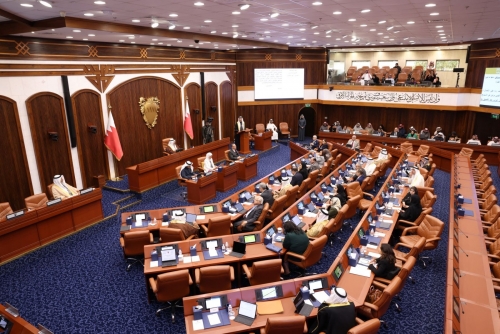Proposal ‘redundant and could put off investors’
TDT | Manama
Email: mail@newsofbahrain.com
The government has rejected a parliament-backed proposal to force private hospitals to fill at least half of medical, technical, and nursing jobs with Bahrainis.
The proposal will be put to vote in the Shura Council today. Backers say it will ease joblessness among medical graduates.
The government, however, says the numbers don’t stack up.
Redundant
With a 70 per cent wage subsidy already covering new Bahraini doctors and dentists for three years, officials argue the law is redundant and could put off investors.
The bill would change Article 14 of Decree-Law No. 21 of 2015, making Bahraini professionals the default choice for private healthcare jobs unless a rare or unavailable specialisation is needed.
The Services Committee has backed the plan, saying it will keep more qualified locals in the field.
Rules
The Ministry of Labour is pushing back, saying the rules already on the books do the job.
The ministry points to Law No. 1 of 2019, which prioritises Bahrainis for medical work while leaving room for exceptions.
A joint system with the National Health Regulatory Authority (NHRA) blocks foreign specialists from getting work permits unless the NHRA confirms there’s no Bahraini available.
Skill
The ministry argues that the law as it stands already gives Bahrainis a fair go, while keeping private hospitals and clinics free to hire on skill rather than quotas.
The government has pumped millions into training and wage support, pointing to existing efforts that pay 70 per cent of new Bahraini doctors’ wages, set pay floors of BD800 and ceilings of BD1,000, and offer up to BD30,000 in student loans for further study.
Tamkeen is covering training costs for 380 scholarships and professional development courses.
Tools
The Supreme Council of Health, the Ministry of Health, and NHRA are backing the government’s stance, arguing that the tools are already in place to help Bahrainis break into the industry.
A letter dated 18 December 2024 confirmed support for existing policy.
The Minister of Health said Bahraini professionals are being placed through targeted training schemes, making them job-ready without the need for forced quotas.
Programmes
The Supreme Council of Health has rolled out programmes alongside Tamkeen to cover board certification costs, get doctors into international fellowship schemes, and expand residency training.
NHRA officials say non-Bahraini licences are only granted when no local candidate is available.
Tamkeen backed the government in a 10 December 2024 letter, arguing the bill adds red tape without bringing real benefits.
Plan
The Bahrain Chamber of Commerce and Industry (BCCI) also weighed in, calling for the plan to be rethought, arguing that Bahrain’s health sector needs flexibility, not fixed numbers.
It pointed to shortages in key medical fields, warning that a blanket 50 per cent Bahraini quota would handcuff employers, especially smaller clinics and hospitals with specialist needs.
Private healthcare operators also raised the alarm, saying the bill would bind them to numbers instead of merit.
Incentives
The Society of Owners of Private Healthcare Institutions suggested incentives over enforcement, proposing that clinics meeting Bahrainisation targets be rewarded with lower NHRA fees.
It warned that the push for quotas could hurt Bahrain’s reputation for medical tourism and water down healthcare quality.
It also flagged that licensing rules require at least five years’ experience for foreign doctors, meaning the law could see junior Bahraini hires replacing seasoned professionals.
Related Posts

